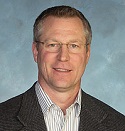
Geoff Kullman will join Dr. Chris Kiesling to present Millennial Adults: Hearing Their Questions, Dreams & Faith at ACTS Seminaries.
Geoff Kullman will join Dr. Chris Kiesling to present Millennial Adults: Hearing Their Questions, Dreams & Faith next week (October 12) at ACTS Seminaries as part of the MinistryLift training series (see more about the presenters and the event below).
Following is a comment by Geoff Kullman from his own site, Millennial Ministry; it is re-posted by permission.
I read it and didn’t think the numbers could be true.
But the research didn’t lie . . .
The outcomes of a recent survey from The Barna Group showed staggering findings – results that surprised even their experts and analysts. And, more than anything, they were results that are critical for church leaders and pastors to learn from in order to understand the “issue” the church is having with Millennials leaving our churches.
 The research showed that the Millennials in our churches (that is, the ones who still show up on Sunday mornings) actually have a mindset and cultural understanding closer to Boomers than to their Millennial peers. In other words, most of the Millennials in your church are there because they don’t actually think like a Millennial!
The research showed that the Millennials in our churches (that is, the ones who still show up on Sunday mornings) actually have a mindset and cultural understanding closer to Boomers than to their Millennial peers. In other words, most of the Millennials in your church are there because they don’t actually think like a Millennial!
Initially, I couldn’t believe the Barna research, but the more I thought about my own experience in churches (both as a pastor and a consultant), it made sense! As the study states, “The way practicing Christian Millennials engage [their faith] looks a lot like the way their parents and grandparents do.”
Here is why this matters and why pastors should care:
-
the young people in your church may not actually be the best ones to ask about how to reach their Millennial peers . . . it would basically be like asking their grandparents about how to effectively reach Millennials
-
don’t fool yourself . . . just because you might have a handful of Millennials attending on Sunday mornings does not mean you are necessarily a Millennial-friendly congregation
-
worst case scenario – if you’re asking the wrong people (aka the “Millennials” in your church) to help you navigate the Millennial mindset (what we call the Seven Core Values of Millennials), then you should ask an expert instead . . . not one of the young people at your church who relates more to Boomers than to their peers
Don’t misunderstand what this means . . . this is not in any way a knock on Boomers or grandparents. Just like having Millennial values is neither negative or positive – it just is – thinking from a Boomer mindset is not negative or positive.
But . . .
If you want to truly engage Millennials who have left your church (or those who are quietly thinking about leaving right now), you need to talk to those who understand the core values of this generation.
So commit to doing something this week:
Find the phone number or email or Facebook of a Millennial who already left your church and ask them to go for coffee. (And send them a text instead of a phone call . . . unless you want to be perceived as pushy.)
-
not so you can sell them on coming back to church
-
not so you can guilt them for having left
-
not so you can complain about their generation
Focus on asking them: “What would a church have to look like (or value) for it to be attractive to your generation?” And then listen to what they say instead of interrupting them or correcting their theology.
Trust me, the very act of listening will be the beginning of building a bridge towards understanding Millennials and their core values.
******************************
Millennial Adults: Hearing Their Questions, Dreams & Faith will address these issues October 12:
The transition from youth group to full participation in the life of the church is a challenging one for young adults. How do we disciple and mentor Millennial adults into the life and leadership of the local church? What does spiritual formation and discipleship look like within a young adult setting?
 Dr. Chris Kiesling is professor of human development and Christian discipleship at Ashbury Theological Seminary. He is a co-author with David Setran of Spiritual Formation in Emerging Adulthood: A Practical Theology for College and Young Adult Ministry; contributor to Does the Shape of Families Shape Faith? and author of many articles on spiritual formation for young adults in academic and clergy journals.
Dr. Chris Kiesling is professor of human development and Christian discipleship at Ashbury Theological Seminary. He is a co-author with David Setran of Spiritual Formation in Emerging Adulthood: A Practical Theology for College and Young Adult Ministry; contributor to Does the Shape of Families Shape Faith? and author of many articles on spiritual formation for young adults in academic and clergy journals.
 Geoff Kullman is a speaker and consultant specializing in faith integration within the Millennial generation. He is co-founder and principal creative at Millennial Ministry and recently joined Open Door Church in Maple Ridge as associate pastor.
Geoff Kullman is a speaker and consultant specializing in faith integration within the Millennial generation. He is co-founder and principal creative at Millennial Ministry and recently joined Open Door Church in Maple Ridge as associate pastor.
MinistryLift is an arm of Mennonite Brethren Biblical Seminary, located at TWU (as part of the ACTS consortium) and in Winnipeg (on the campus of Canadian Mennonite University). This is how they describe their role:
Our goal is to help you increase your capacity to love God and others. We’re committed to providing practical resources that you can use to make your ministry more effective while adding health and stamina to your leadership. We provide training events, online resources and other tools that leaders from over 224 churches and 21 denominations have found helpful.
